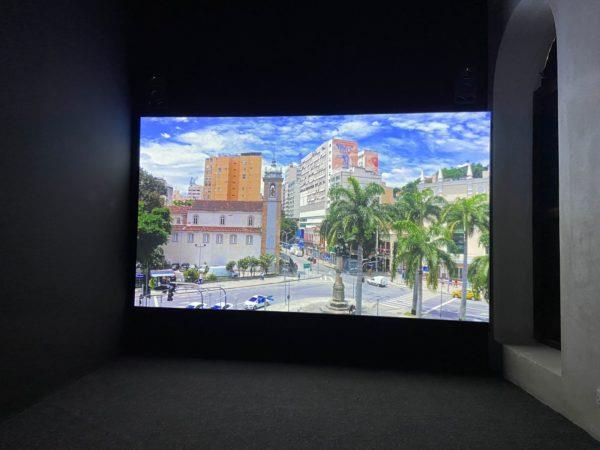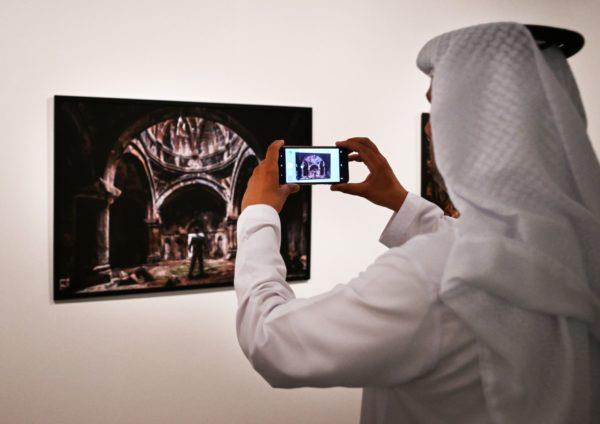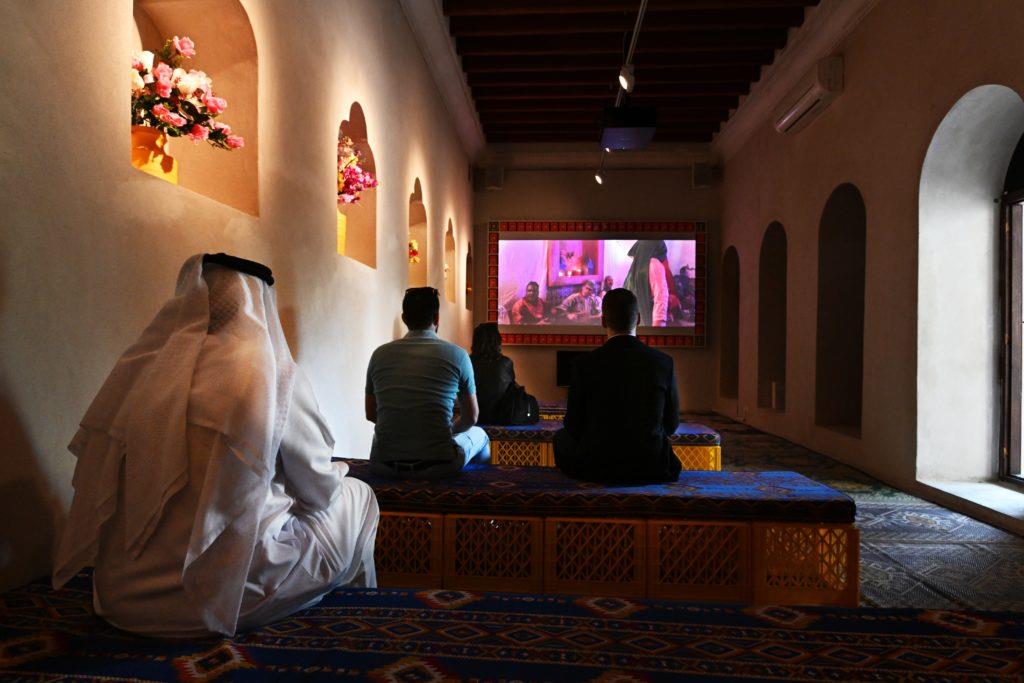(MENAFN- Brazil-Arab News Agency (ANBA))

Sharjah –“My best friend growing up was white. One day she asked her mother when I was going to get better,” narrated Brazilian visual artist Aline Motta in the work 'A Água é uma máquina do tempo' ['Water is a time machine,' in free translation], on display at the 15th Sharjah Biennial , in the United Arab Emirates. According to her, the work focuses mainly on the story of her great-great-grandmother Ambrosina, who lived in downtown Rio de Janeiro at the turn of the 19th to 20th centuries.“Contrasting with the present, I also report on the death of my mother, who passed away in 2011, and how the life stories of these women are shuffled and intertwined over time,” said Aline.

Aline Motta's video work
Combining archival material and new images with spoken poetry, the video brings a dialogue between memory and historical record, past and present, and personal and collective spheres. The biennial highlights that, by alternating these elements, the artist presents a reinterpretation of a time that talks – a lot – about racial oppression, vulnerability, and family.
Aline is one of the 150 artists and collectives participating in the Sharjah Biennial 15: Thinking Historically in the Present , which returns after being postponed by the pandemic.“It is a biennial in which most of the works establish a strong relationship with archives, whether intimate and personal like mine or historical and institutionalized,” said the Brazilian.
Conceived by Nigerian Okwui Enwezor , who died in 2019 at 55, and curated by the director of the Sharjah Art Foundation, Hoor Al Qasimi, the event reflects on his work. For organizers, Enwezor transformed contemporary art and influenced the evolution of institutions and biennials worldwide, including Sharjah.
Hoor Al Qasimi revealed the touchstone was Documenta11 in 2002 - the artistic direction of the event in Germany was in charge of the Nigerian, the first time someone from outside Europe was invited.“I didn't know Okwui at the time, but as someone coming from a non-Western country or space and going to Kassel, Germany, to see an exhibition where all of our voices were present - basically a platform for the discussion of the Global South - it was very inspiring and a novelty at the time, so I think that was something Okwui brought to the scene,” said Hoor in an interview from Sharjah.
The director of the Biennial, who visited Brazil a few times, interpreted and developed Enwezor's proposal, which gave the title to the current edition. Before he died, Enwezor handed over the task to the Emirati woman. For Al Qasimi, the result is a tribute to Enwezor, a manifestation of the learning that came from him. In the curatorial statement, she writes this year's event is not just an independent biennial.“It is the culmination of all relationship-building and conversation-building predecessors that developed for over three decades, both inside and outside Sharjah, deterritorializing our local context with its regional equivalents across the postcolonial constellation of the Global South,” said the curator.
Through over 300 works , the biennial proposes a transcultural universe in which artists present perspectives on nation, tradition, ethnicity, gender, body, and imagination, as stated by Al Qasimi. The works can be seen in different locations spread across five cities in the emirate of Sharjah, which is reputed as a regional cultural hub. Sharjah was elected the Arab Capital of Culture in 1998 by the United Nations Educational, Scientific, and Cultural Organization (UNESCO).
“I feel what I did was also to place myself as a woman in a space where many women were invited. There is a strong female voice in this Biennial, which I think is very important,” pointed out Al Qasimi, who curated the Lahore Biennial (Pakistan) in 2020 and contributed to several other international exhibitions.
Among the artists are names from Latin America , such as Cuban-born Maria Magdalena Campos-Pons, Argentine Gabriela Golder, Peruvian Flavia Gandolfo, and Colombian Doris Salcedo. In addition to female voices, Al Qasimi brought artists with different backgrounds.“It also brings an intergenerational discussion; we'll have some younger and well-established artists,” she commented. But there are no favorites. Al Qasimi refuses to choose a favorite work. She says every art piece is important to her.

Work on display at the Sharjah Biennial
Regarding how visitors can experience the current Biennial, which runs until June 11, the curator is curt:“It is essential people take their time. It's not a festival to come and go; it's not a celebration.” Noting the earthquake that affected Syria and Turkey, Al Qasimi underscores the message she had just given:“It is very important this is a space for discussion, to think about the works people are seeing. It's not a sight to come and look at; it is not a celebration.”
The Sharjah Biennial, commemorating its 30th anniversary in 2023 - 20 years of which were headed by Al Qasimi - does not seek a definitive answer to the questions raised, as pointed out in the curatorial statement. Al Qasimi's intention is not to position herself as a guide either.“Rather than focusing on any single curatorial voice, I believe it would be more constructive to collectively embrace the spirit of 'being guided' - by one another and our ever-evolving cross-cultural solidarities,” she declared.
At the end of the interview, Al Qasimi recalled when she took her father - Sheikh Sultan bin Muhammad Al Qasimi, member of the Supreme Council of the United Arab Emirates and ruler of Sharjah - to Al Dhaid, one of the Biennial venues. The leader emphasized the importance of each work displayed to the local community.“[Each piece] talks about people's struggles, suffering, and history. Not in the way of victimization, but showing a space of shared solidarity, understanding, and I think there's something about coming together and telling stories you can find resonance,” concluded the curator.
Morocco-Brazil connection
Brazil is also featured in the work of Hassan Hajjaj. The Moroccan, who challenges Western perceptions of Arab culture, brought the documentary“Gnawa Capoeira Brothahood.” The work deals with the similarities between capoeira [Brazilian dancing martial art] and gnawa – highlighting the shared origin between the practices. According to information supplied by the Biennial, the film shows contrasts and, at the same time, a connection between capoeira and gnawa that, despite being geographically separated, share history and aesthetics.
The 15th sharjah biennial opened on February 7. The event runs until June 11 in the emirate of Sharjah. Admission is free.
Translated by Elúsio Brasileiro
Sharjah Biennial 15
Press release
Press release
The post sharjah biennial 2023 focuses on global south appeared first on agência de notícias brasil-árabe .

.jpg)





















Comments
No comment